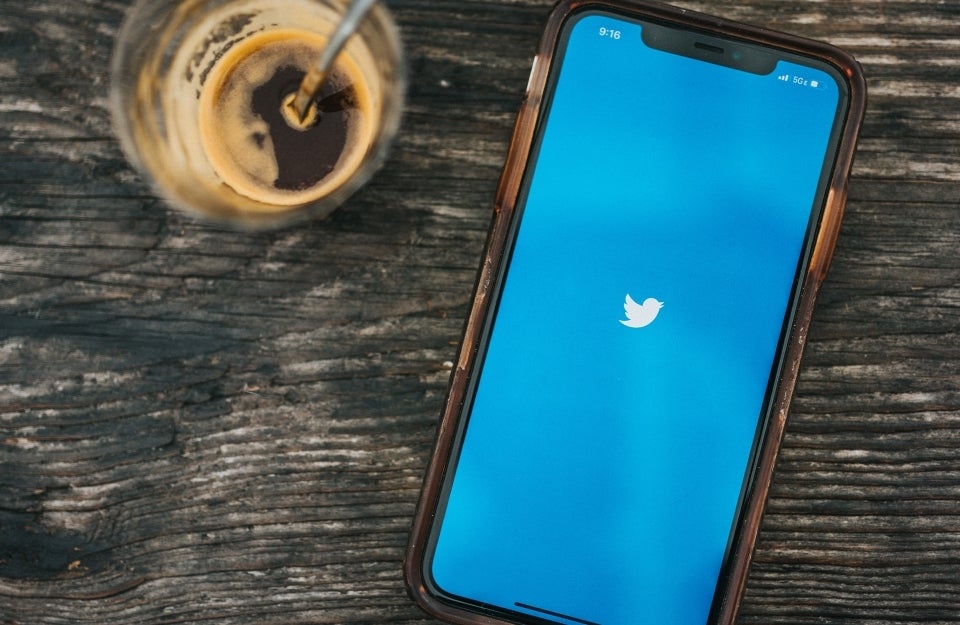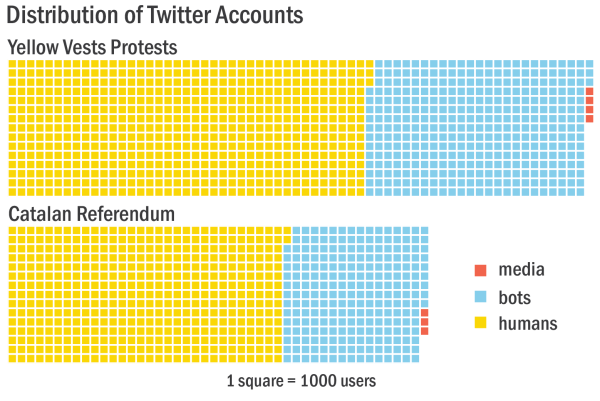Twitter Bots May Not Be as Influential as You Think
A new study from Professor Sandra González-Bailón found that verified media accounts are more central in the spread of information on Twitter than bots.

Photo Credit: Nathan Dumlao / Unsplash
Dis- and mis-information is rampant online, and bots — especially those operating on social media — catch a lot of the blame. But bots may not be as much of a problem as they are often made out to be.
A new study from Annenberg School Associate Professor Sandra González-Bailón found that verified media accounts are more central in the spread of information on Twitter than bots — even though they amount to a much smaller fraction of all accounts active.
“Online networks are an important channel for the distribution of news,” says González-Bailón, “so we wanted to analyze how human, bot, and media accounts interact in the coverage of contentious political events, such as demonstrations, strikes, or acts of civil disobedience.”
González-Bailón and her co-author, Manlio de Domenico of the Center for Information and Communication Technology at the Fondazione Bruno Kessler in Italy, collected and analyzed tweets from hundreds of thousands of unique accounts during two events: the 2018 Gilets Jaunes (or Yellow Vests) movement in France, and the 2017 Catalan referendum for independence from Spain. They compared the Twitter data to web-tracking data, including the audience reach of news sites in France and Spain, from the same time frame.

Their findings suggest that verified media accounts — including those of news organizations, journalists, and public figures — are much more likely to receive retweets than bots or human accounts. And while certain news outlets were less popular on Twitter than on the web, they found no evidence to suggest that bots caused this discrepancy.
González-Bailón cautions that additional research is necessary to identify other possible mechanisms of bot influence.
“Given the impact that misinformation can have on democracies, it is important to understand the role that bots play in the dissemination of news and in the broader media landscape,” González-Bailón says. “Additional studies would need to be conducted to evaluate if bot activity had a more prominent impact on other forms of social media manipulation, like hijacking hashtags or gaming the algorithmic ranking of content. In any case, our results cast doubts on the ability of bots to dominate information flows during episodes of heightened political tension. And they also highlight the importance of clearly defining the verification policies social media platforms use to identify accounts of public interest.”
“Bots are Less Central than Verified Accounts during Contentious Political Events” was published today in PNAS. The research was partly funded by the NSF and it was completed while González-Bailón was on sabbatical leave at the Center for Advanced Study in the Behavioral Sciences at Stanford University.
For more on González-Bailón's research, watch this video:



